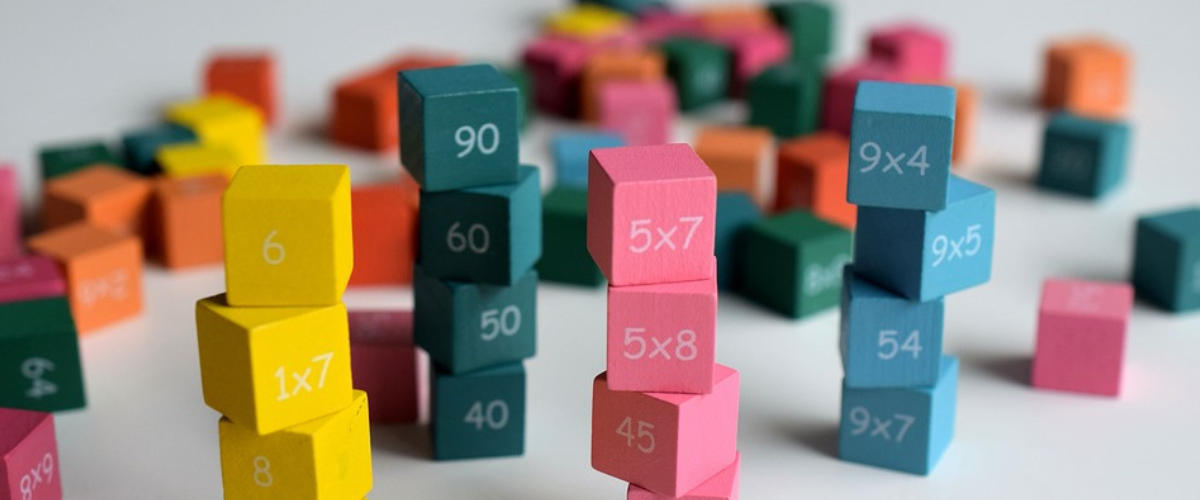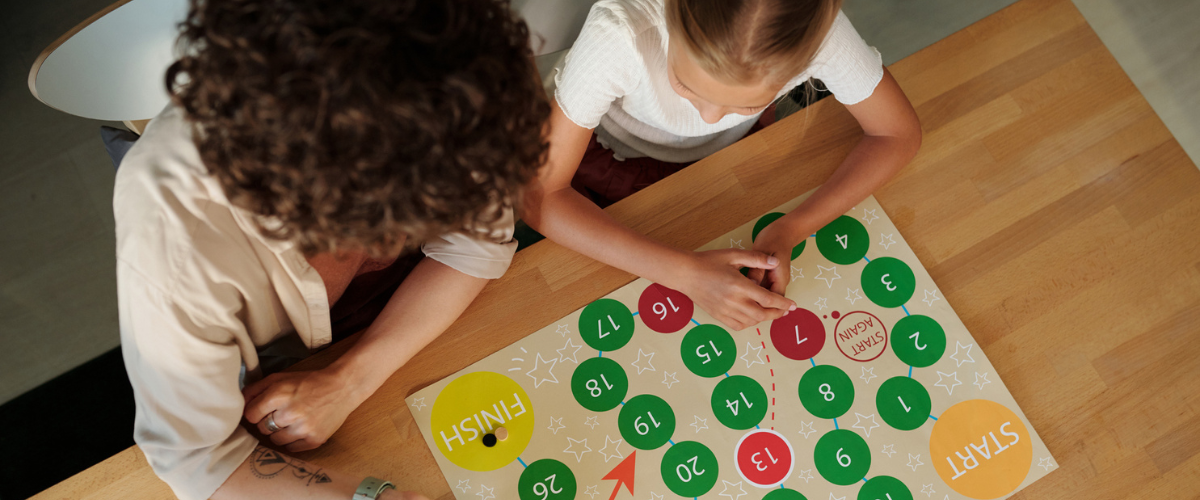If you are homeschooling math or helping kids with their math homework, you might have noticed that activities and questions often go deeper than simply answering a simple math question.
Kids are often encouraged to apply their math skills in different contexts and to reason with their math knowledge, and this is key to developing kids' math understanding.
But, you may wonder what math reasoning is and why it is so important.
Read on as we dive into math reasoning and explore some ways you can develop it when you're homeschooling math.
What is reasoning?
Reasoning isn't just a math concept — everyone uses reasoning skills multiple times a day. The Merriam-Webster dictionary defines reasoning as:
The drawing of inferences or conclusions through the use of reason.
In other words, we reason when we make informed decisions or have ideas that are based on existing knowledge or skills.
Reasoning in math helps children become curious and investigative mathematical thinkers who can flexibly use their math skills and knowledge. Reasoning means kids can make logical links and connections within and between areas of math and plan, organize, and communicate their math ideas effectively.
Mathematical reasoning can also be thought of as the glue that bonds kids' mathematical skills together. It allows kids to use their math knowledge and fluency to make connections between areas of math, solve problems, and make sense of math for themselves.
Alongside conceptual understanding and problem-solving, reasoning is vital for ensuring kids understand and can apply their math knowledge and skills.
When do kids use reasoning skills in math?
There are plenty of opportunities for kids to use their reasoning skills in math, and they're probably reasoning without even realizing it! Some examples of children's reasoning includes:
- Gathering and interpreting information to solve problems.
- Explaining their mathematical thinking.
- Evaluating situations and approaches.
- Making connections between different areas of math.
- Choosing what math skill or knowledge to use to solve a problem.
- Drawing logical conclusions.
- Developing solutions to a problem or challenge.
- Describing their approaches or solutions.
- Reflecting on their solutions to problems.
5 stages of math reasoning skills
Kids will develop their reasoning skills with practice, so it's vital that kids are given the opportunity to reason whenever you homeschool math.
Reasoning should be an integral part of math learning rather than something 'added on to the end,' and you'll discover some easy ways to get kids reasoning later in this article.
But it's also important to remember that kids need to have a secure conceptual understanding of that area of math to confidently reason with a math idea or concept. Kids will generally develop their reasoning skills within a new math knowledge in 5 stages:
Stage 1. Describing–simply telling someone about the steps they took.
Stage 2. Explaining– giving some reasons for the steps they took or math approaches they used. As reasoning isn't about getting math 'right', their explanation may not be correct and may not hold together coherently.
Stage 3. Convincing–being confident in their reasoning and trying to convince others it is correct. Kids may use phrases such as 'I'm sure that…' or 'I think that…'. This stage is sometimes called 'inductive reasoning,' and while your child's' math argument may not be entirely accurate yet, it will have more coherence than at the 'explaining' stage.
Stage 4. Justifying– giving a logical argument with a complete train of reasoning. When justifying, kids may use words and phrases like 'because,' 'therefore,' 'and so,' and 'which leads to.'
Stage 5. Proving–giving an argument, deduction, or answer and proving it is mathematically sound. Proofs are often based on the underlying structure of math alongside generalizations.
Do you want help developing the reasoning skills of your kids? Then why not sign them up for one of Outschool's engaging online math classes?
Outschool offers a wide range of classes, including whole curriculum classes and courses on individual math topics from kindergarten math to advanced math.
Reasoning helps create confident and flexible mathematicians
Being able to reason in math also boosts children's confidence and attainment in math.
The National Council of Teachers of Mathematics has identified multiple research studies that clearly show that children's math learning is greatest where tasks constantly encourage high-level thinking and reasoning.
Reasoning could be thought of as the soil in which math understanding takes roots and grow. If kids can reason with their math knowledge and skills, they can apply them to different situations and use them as the foundation for future learning, which makes learning new and more complex concepts more accessible.
Unlocking math superpowers
We can help develop a child's reasoning by allowing them to 'unlock' and use their mathematical superpowers. These are a series of eight math powers that were first identified by Professor John Mason. We all possess these powers, and they are central to our ability to reason in math and solve problems.
These powers, which come in pairs, are:
Conjecturing and convincing
Conjecturing–children should be encouraged to make conjectures and say what they think, what they notice, or why something happens. For example, a third grader may make the conjecture, 'I think that when you multiply an odd number by an even number, you will always end up with an even number.
Convincing–kids should then be encouraged to convince or to persuade people that their conjectures are true. In the process of convincing, children may use some, or all, of their other 'math powers.'
Organizing and classifying
Organizing–children should be encouraged to organize or put things, such as numbers, facts, and shapes, into a group, order, or pattern.
Classifying–children should then be encouraged to classify the objects they have organized, for example, by identifying the groups as odd or even numbers or irregular and regular shapes.
Imagining and expressing
Imagining–children should be encouraged to imagine objects, patterns, numbers, and resources to help them solve problems.
Expressing–children should be encouraged to express their thinking and to show and explain their thinking and reasoning about a problem, relationship, or generalization.
Specializing and generalizing
Specializing–children should be encouraged to look at specific examples or a small set of examples of something to test their conjecture.
For example, a child might use the numbers seven and eight to test their conjecture that an odd number multiplied by an even number equals an even number.
Generalizing–children should be encouraged to generalize and to make connections, then use these to identify rules, patterns, and relationships.
For example, they could generalize that any odd number multiplied by any even number equals an even number. Older children should also be encouraged to use algebra to express their generalizations.
When homeschooling math, you should encourage children to use these powers and identify when they use each power. To help with this, we've created a handy poster that you can use to help kids identify which math superpower(s) they are using.
The power of math talk
One of the best ways to develop kids' math reasoning is to encourage them to talk! When kids talk about math and what they are doing, they are likely to start explaining, justifying, and convincing, which are key reasoning skills.
Encouraging kids to talk about math has also been shown to significantly increase their confidence and attainment in math.
Talking also gives kids the opportunity to try out their thoughts, ideas, and reasoning in a non-threatening and ‘low stakes’ way. You can help encourage math talk when homeschooling math by helping kids use some key math sentence starters, such as:
- I think this because...
- If this is true, then…
- This won't work like…
- I’m sure that….because….
- I know the next answer will be... because...
- This can’t be the answer because…
- When I tried XYZ, I noticed that...
- I notice a pattern that…
- Because I know ABC, then I think XYZ.
Want to give your kids even more opportunities to talk about math? Then why not sign them up for one of Outschool's online math classes, math camps or math clubs, where they can talk about math with other kids under the guidance of their expert Outschool teacher?
How to introduce reasoning when homeschooling math
It doesn't have to be lots of hard work to make opportunities for kids to reason why you homeschool math. Simply asking 'why' when your kids answer math can lead to a fantastic, reasoning-filled conversation.
You can also use some simple question structures to help get reasoning into all of your math sessions. Here are eight structures that can apply to any area and level of math:
- Always, sometimes, never -e.g., 'Is it always, sometimes, or never true that multiplication makes a number bigger?'
- Always, another, another - e.g., 'Give me a pair of fractions that add to make 1/2. Give me another… and another…. And another…'
- What's the same? What's Different? - e.g., 'What's the same, and what's different between ¼, 25% and 1:4?'
- Peculiar, Obvious, General - e.g., 'Can you give a peculiar, obvious, and general example of a fraction? What makes it peculiar? What makes it obvious?'
- Hard and Easy - e.g., 'Can you give me a hard and easy addition question that you can solve? What makes it hard? What makes it easy?'
- Give me an example of…- e.g., 'Can you give me an example of a regular shape that has four sides?'
- Silly answers - e.g., 'What would a silly answer be for 6 + -3? Why would it be silly?'
- What else do we know? - e.g. ‘If we know that 3 x 6 = 18, what else do we know?’
We’ve unpicked each of these structures in more detail and given examples from different grade levels in our reasoning strategies blog.
Resources to support reasoning
There are lots of resources online that can help you introduce reasoning into your math homeschooling. Including:
- NRICH is a fantastic free resource produced by the University of Cambridge in England. NRICH features over 2,000 different reasoning activities, games, and resources from PreK to College level, as well as useful articles, tips, and strategies for developing reasoning and problem-solving. Tasks are arranged by age brackets and can be used no matter which math curriculum you follow.
- YouCubed is a useful site produced by Jo Bolar, a leading math teacher, and researcher at the University of Stanford. It includes many open-ended reasoning tasks, interesting articles, and tips about developing confident mathematicians.
- Outschool offers a wide range of engaging and exciting online math classes that will help your kids develop their reasoning skills under the guidance of an expert Outschool teacher. You can also enlist the services of an Outschool private math tutor to provide bespoke sessions for your kids to help them develop their math and reasoning skills.
The bottom line is when it comes to teaching your kids math, don’t worry so much about ‘just getting it done.’ Instead, focus on helping them understand why math works.


.svg)
.svg)







